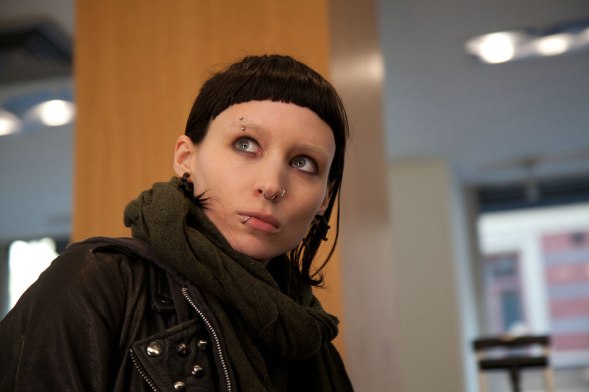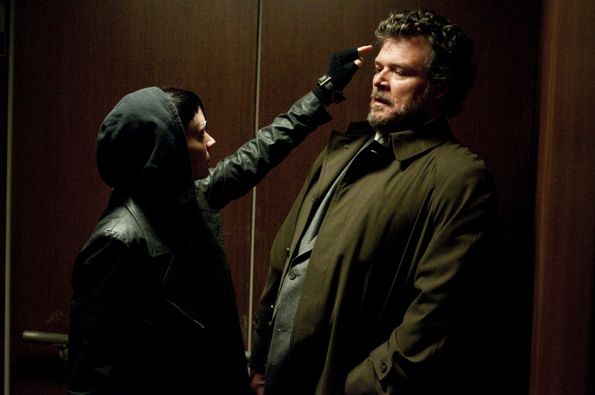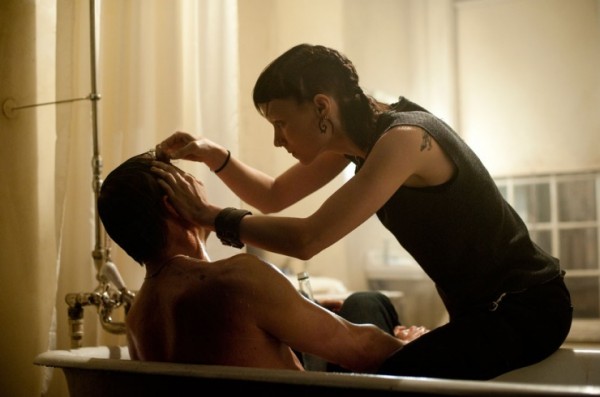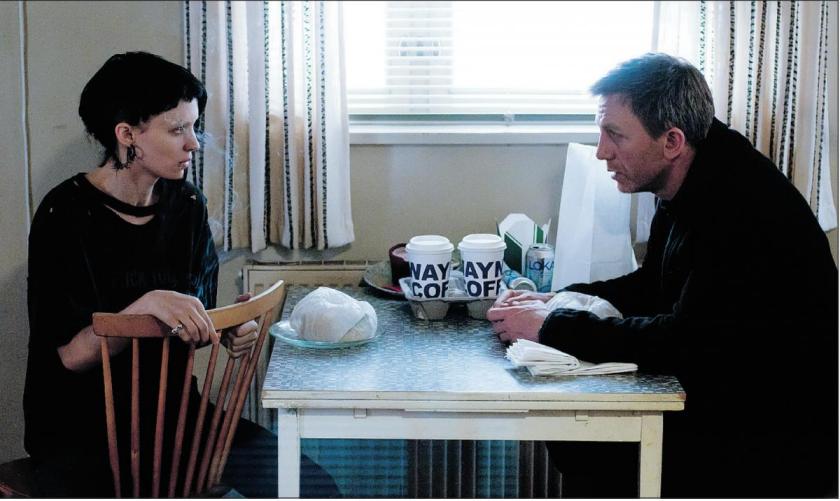We’ve been here already: with Stieg Larsson’s three posthumous Millennium books and the Swedish films based on them; and Tomas Alfredson’s Let the Right One In and its scrupulous, instant US remake. Though Hollywood assimilates global talent, American audiences won’t, it seems, sit through foreign-made or, worse, foreign-language films. So a release which seems redundant here, barely a year after large British audiences saw Niels Arden Oplev’s original, may be seen on its own terms across the Atlantic – as David Fincher’s follow-up to The Social Network, and return to Se7en and Zodiac’s psycho-thriller terrain. But as with the US Let Me In, we really have seen it all before.
 We again watch crusading journalist Mikael Blomkvist (Daniel Craig) hounded out of his job at Millennium magazine after a botched investigation, and seeking respite on the snowbound island of Hedestad, where ailing tycoon Henrik Vanger (Christopher Plummer) asks him to solve the presumed murder of his vanished niece in 1966. “You will be investigating thieves, misers, bullies, the most detestable collection of people you will ever meet – my family,” Henrik warns. His clan of ancient Swedish Nazis, recluses and eccentrics include Stellan Skarsgard and Joely Richardson in a starry cast, with Plummer a reliable treat.
We again watch crusading journalist Mikael Blomkvist (Daniel Craig) hounded out of his job at Millennium magazine after a botched investigation, and seeking respite on the snowbound island of Hedestad, where ailing tycoon Henrik Vanger (Christopher Plummer) asks him to solve the presumed murder of his vanished niece in 1966. “You will be investigating thieves, misers, bullies, the most detestable collection of people you will ever meet – my family,” Henrik warns. His clan of ancient Swedish Nazis, recluses and eccentrics include Stellan Skarsgard and Joely Richardson in a starry cast, with Plummer a reliable treat.
Meanwhile Lisbeth Salander (Rooney Mara, pictured left), the sociopathic, computer-hacking ace who checked Blomkvist out for Vanger, has parallel troubles in Stockholm, till the journalist draws her into his search for a lost girl’s fate.
The title sequence, a CGI-slick tribute to old Bond ones, knowingly ushers in a new franchise. Daniel Craig, already playing the real thing, is far more understated as Blomkvist. Though he can’t match Michael Nyqvist’s baggy middle-aged everyman in the original, he shrinks into the role, shucking off his physical power. The wait continues for a return to his challenging pre-Bond parts, but he’s effectively ordinary.
Rooney Mara has the more thankless task as Salander. Noomi Rapace made her a genuinely iconic, ferocious, blunt and bisexual heroine. Fincher and Mara – impressive as Mark Zuckerberg’s girlfriend in The Social Network – subtly soften the role. Ghost-pale, in S&M Goth gear that’s Hollywood shorthand for “alternative”, Mara makes her almost diffident, a nice girl at heart.
 All the scenes you couldn’t imagine surviving priggish Hollywood do. The Swedish title was Men Who Hate Women, and the worst man we see in action is Salander’s guardian (Yorick van Wageningen, pictured above with Mara), who has controlled her income since she became a ward of state as a child (for inflicting 80 per cent burns on dad, more of which in the sequel). He doles out the cash in return for a sadistic, prolonged anal rape, Salander soon taking appropriately extreme revenge. But Fincher’s camera skirts around these acts, shirking their point. The scene where Salander casually beds a startled Blomkvist is also made more obviously trangressive of gender norms, restored when Craig rolls on top. What was raw and matter-of-fact in Sweden is smooth and self-conscious here.
All the scenes you couldn’t imagine surviving priggish Hollywood do. The Swedish title was Men Who Hate Women, and the worst man we see in action is Salander’s guardian (Yorick van Wageningen, pictured above with Mara), who has controlled her income since she became a ward of state as a child (for inflicting 80 per cent burns on dad, more of which in the sequel). He doles out the cash in return for a sadistic, prolonged anal rape, Salander soon taking appropriately extreme revenge. But Fincher’s camera skirts around these acts, shirking their point. The scene where Salander casually beds a startled Blomkvist is also made more obviously trangressive of gender norms, restored when Craig rolls on top. What was raw and matter-of-fact in Sweden is smooth and self-conscious here.
The translation’s imperfect elsewhere, too. “Hide the past.. .under a thin shiny veneer... like an Ikea table,” grumbles an old Vanger Nazi of his family. But the anti-fascist work that inspired Larsson’s books, the sense of a lingering sickness in the Swedish state, leaves Fincher and his screenwriter Steve Zaillian cold. The jaundiced yellow lighting he filters the film through, like the Se7en-style rain that Stockholm is Biblically drowned in, is a parodic stylistic twitch, not a symptom of Sweden’s disease. The first Girl’s unconscious exoticism, the details of somewhere different, have been lost.
 The nicest moments contrast Blomkvist’s largely shoe-leather approach to investigating a crime from the pre-digital age with Salander’s laptop wizardry. The former mumbling to himself as his unevolved 20th-century fingers fumble over his keyboard draws heavy sighs from his young partner, summing up this odd couple (pictured right).
The nicest moments contrast Blomkvist’s largely shoe-leather approach to investigating a crime from the pre-digital age with Salander’s laptop wizardry. The former mumbling to himself as his unevolved 20th-century fingers fumble over his keyboard draws heavy sighs from his young partner, summing up this odd couple (pictured right).
The Bond comparisons return when Blomkvist is trussed up by a talkative villain, highlighting the daffy conviction of the baggy, often bonkers stories which Larsson wrote to relieve stressful days fighting real fascist evil. Fincher has made a smoothly enjoyable, elegant film that wears its two-and-a-half hours lightly. But he can’t find a way to make it matter.
Watch the trailer to The Girl With the Dragon Tattoo on YouTube













Add comment